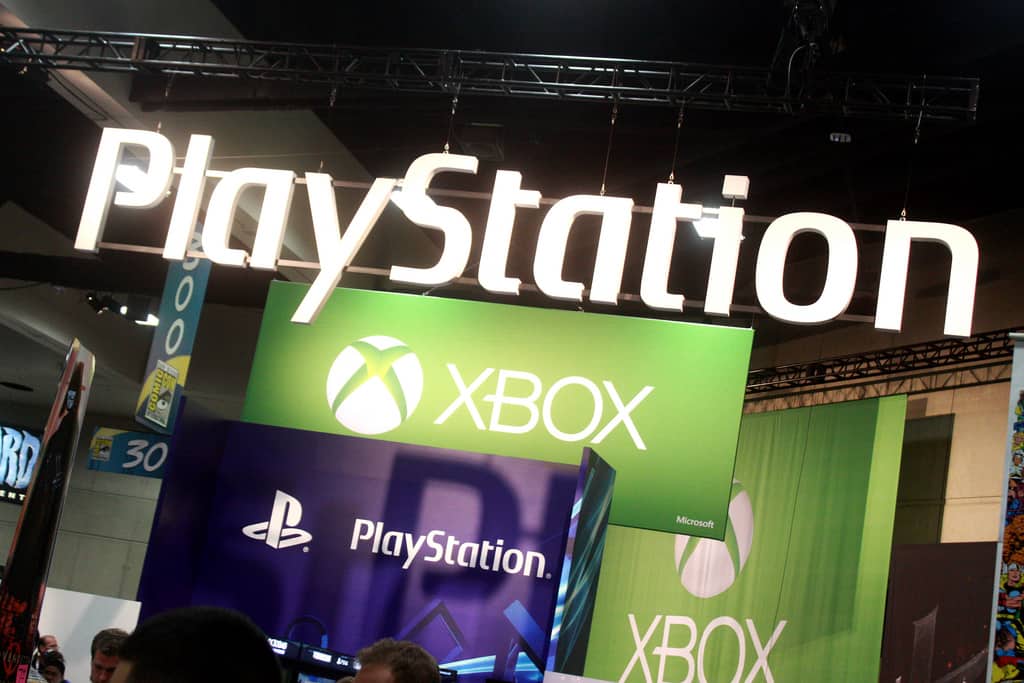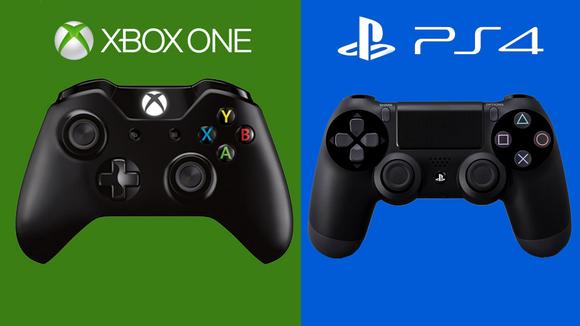Maybe you follow the video game industry and maybe you don’t. Either way, it’s worth paying attention to Microsoft’s latest moves in that arena, because I believe they’re reflective of a problem facing Microsoft that can affect each of us as well. It’s one of the fundamental questions that any person or entity must answer: Who am I?
At the beginning of the summer, at the annual Super Bowl of video games, the Electronic Entertainment Expo, or E3, as it’s known, both Sony and Microsoft introduced their new video game consoles. These are so-called 8th-gen systems. Don’t ask me what the first generation was, but during the second and third generation, I used to work for Nintendo of America in its halcyon days of explosive growth, popularity, and mostly, lack of competition, since neither Sony nor Microsoft were in the market back then. So here we are, seeing the latest and greatest that both of these powerful giants could field.
Microsoft took the first swing, but even before their huge press conference, there were rumblings that its console would do two things that were remarkably unpopular with it’s core audience: it wouldn’t allow you to play a pre-used game and it would need to check in with the Microsoft mothership via the internet once every 24 hours. They went ahead and in a multimedia extravaganza, introduced the Xbox One to the world.
The internet, and its composite parts, immediately frowned on Microsoft’s decisions. It is worth noting here that, while gamers (a very loosely defined term these days) demand innovation in their pursuit of digital entertainment, they are historically quite conservative. They want more realistic graphics, new input mechanisms and, increasingly, more streamlined methods of playing and interacting with friends online, but not at the price of sacrificing things they’ve come to expect from their devices. Many gamers build their libraries of games by either waiting until the titles are several months old and picking up a used copy or trading, lending, or giving a game to a friend when they’ve had their fill. Microsoft’s reliance on digital delivery of new games, similar to the way iTunes delivers purchased music, would ween consumers off of the used game market. This perceived limitation on what you could do with a game disc you had purchased, coupled with the need to check in once every 24 hours (no playing games at your remote lake cabin, or if your internet service provider went down, etc.) were the focus of pretty much every report that came out of E3. Then Sony dropped the hammer.
While Microsoft was still scrambling, trying to do damage control, and explain why their perceived minuses were actually huge pluses, Sony took the stage. Sony’s CEO of it’s computer entertainment division, Jack Tretton, got up and highlighted the new Playstation 4. No “always-on” internet connection required. Applause. No limitations on used games. Thunderous applause. And $100 less than Microsoft’s offering. The crowd goes as wild as if Led Zeppelin were taking the stage in their heyday. It was the gaming geek equivalent of the rap battle at the end of 8 Mile. Sony stood there staring Microsoft in the eye and the Xbox One couldn’t even work up a stammer. Headlines were written proclaiming Sony the victor of the next generation of console wars months before the devices will even be available. Pre-orders on Amazon for both consoles had the Playstation 4 being preferred almost 5:1 over the Xbox One. It was a PR bloodbath.
In less than a week, Microsoft knelt before the will of the internet and, rending Masterchief’s Mjolnir armor, rescinded both of these strategic decisions, which will no doubt cost them sizable sums in both licensing agreements and in moving things forward according to their projected strategies. The vox populi had triumphed! Right? Right? Not so much, in my opinion.
I think this because it seems to me that it’s Microsoft who’s trying to drive the way people play games forward by trying to advance the where and how we get those games.1
The real story revealed in those two unveilings hasn’t been much covered. Stripped down to fundamentals, it goes like this: Sony introduced a gaming console with some entertainment and social networking elements. Microsoft introduced a home entertainment and networking hub which also happened to play games. But Microsoft made the mistake of trying to sell it at the annual gathering of one the most vocal and scrutinizing audiences on the face of the planet. That, I believe, is the real cause of the outrage being vented by gamers: you know who we are, and you know what we want, and you tried to convince us that we wanted something else.
This slight mis-step2 is indicative of a larger problem at Microsoft, however. Microsoft no longer knows who it is. For years now, Sony has been expanding and re-fashioning itself from a consumer electronics company into one which provides entertainment. From end to end. f you want a particular device, they have plenty. If you go to a film at the theater and watch a film from that division of their corporate stable there are plenty to choose from. They have invested in musicians and recording artists as well, whose songs and albums you can stream via their online service or purchase over Apple’s iTunes. They’ve become an entertainment company. Microsoft, on the other hand, is still confused about its identity.
Microsoft is in the midst of a mid-life crisis. It’s trying to negotiate a difficult transition from a products company to a services company. It’s used to defining the terms on what will be offered and having those terms acceded to, regardless of whether people like the terms or not. For years, Microsoft’s Windows and Office products were what drove the corporate train. They were the bread which many computer users globally consumed whether they liked it or not. But in 2012, their Xbox division accounted for almost as much revenue as their Windows division.

Who am I?
Today, with the advent of web-based application solutions you can edit documents, presentations, and spreadsheets in a web browser rather than purchase a copy of Microsoft Office. Google and Microsoft both have web products that allow you to do this, and Apple will soon be introducing a similar service in the cloud. This means we don’t have to purchase Office. If you can open a web browser, you can work. Microsoft knows this and they’re trying to adapt, but they’re not there yet.3 They still don’t know exactly who it is that they are.
What we see in the case of Microsoft is a company who knows who it was, but isn’t sure who it is, and is struggling through trying to redefine itself and deliver services that people desire in a world where people are becoming increasingly used to having their demands and desires met with great speed. There is almost a feeling of the dowager countess’s indigence in Microsoft’s air in recent years: you should want our products, they’re saying, only to be met with market indifference.
To me, it highlights the importance of a fundamental tenet of Ignatian spirituality: if you know who you are, you’ll know what it is you need to do. We can all become complacent and overly confident, especially when we experience success. We must never tie our identity so closely to what we do that we forget that who we are as persons is more significant than what we produce. Sure, we ought to acknowledge our successes, but then we need to ask whether these same successes are moving us toward becoming the person I was created to be or further from being that person.
The task facing each of us is the same task facing Microsoft: we need to know who we are and call ourselves to become the person we have been created to be. Otherwise we will, day by day, forget who we are and start to produce things, or a version of ourselves, that not even we desire. We need to be constantly reminded that our core audience is God.
Clear as it might be, this is not an easy task. It’s easy to get caught up, swept along by the pace of life. Especially when I’m feeling like I’m being successful, that awareness of my connection with God can get lost in the shuffle. I can get so focused on how the ‘features’ I’m trying to add to my life are being reviewed by others that I lose sight of where what I’m doing fits in with how I’m becoming who God created me to be. This happened most particularly in my own life just a few years before my ordination, when I was asked to write a stating that, after a number of years as a Jesuit, I felt that God was inviting me to be a priest.
Initially I wrote a fine, articulate, safe, letter, but something happened just before it was done that made me go back and review and re-work it. One of my students challenged me one day about why I wanted to be ordained. He asked me why I wanted to be a priest. I paused and thought for a second, and, in the mind of this high school sophomore, meant only one thing: this guy is hesitating; he doesn’t even know why he wants to do this. Before I could muster a good answer, my sophomore had spun on his heel, and thrown over his shoulder this: “That’s what I thought,” he said, “You don’t know why you’re doing this. You could have a real life and instead you’re doing this. And you don’t know why.”
He might as well have hacked my computer and deleted the file containing that letter right then and there. As I re-read that letter in the harsh light of his challenge, it sounded hollow and flimsy, full of niceties and clichés that no longer felt true to what I wanted to do with my life. As the days and weeks passed and I tried to go back and re-write the letter the whole process became more difficult. I was stymied and frustread. Until one day Olympia Dukakis provided my answer.
I was sitting in the TV room in a whirlwind of red ink, marking US History exams, and the movie Moonstruck was on TV. There’s a scene in the film where Ms. Dukakis’ character, Rose Castorini, is having a pass made at her by a university professor. He wolfishly asks if he can join her in her house for a night cap. The look she shoots him when he proposes the tryst gives new meaning to the word ‘disdain.’ She tells him, no, and when queried about why not, she responds with: “Because I’m a married woman. Because I know who I am.”
It was that line that made my head come up from my marking and captured both my imagination and my prayer life for weeks afterward. It was exactly that that had been missing from the letter I had written.
I knew what I wanted to do as a priest and I’d articulated that in the letter, but this movie moment helped me crystallize the fact that for me, priesthood was an intimate part of who I am, not what I do. By moving toward becoming who I had been created to be, I realized that by living a life of service would be what I would ‘do.’ If I was able to choose things in life that lead me toward that end more often than I chose away from it, I could rest in the knowledge that God would review the end product well. Adjusting features here, listening to user feedback there, keeping me out of the line of fire of Fan Boys and Trolls. While our every day decisions may not carry the fiscal judgments that Microsoft’s struggle with identity carry, they are far, far more important for building the Kingdom of God. And if we can learn this lesson, maybe there’s hope for Microsoft.
***
The cover image, by Flickr user Kitsuney, can be found here.
— — // — —
- In truth, the advances that they have developed with their updated Kinect motion controller and voice control systems truly are fantastic. ↩
- Yes, I think it’s slight, Microsoft will recover a large chunk of its audience, this is already being seen in the huge rebound of pre-orders for the Xbox One on Amazon following the reversal ↩
- Their Office365 products are exactly that. I can tell you from experience, however, that Microsoft still believes itself to be in the driver’s seat, able to dictate terms to consumers in an age when: A) consumers are feeling more powerful than ever and B) Microsoft doesn’t rule the earth the way it used to. That’s a tough combination to re-adjust yourself to when you’re used to being the big kid on the block. I have dealt with Microsoft in trying to negotiate cloud-based products and services for education, and they simply didn’t grasp that they needed to please us more than we needed to pay them. In the end, my organization switched from Microsoft products to Google’s. ↩



